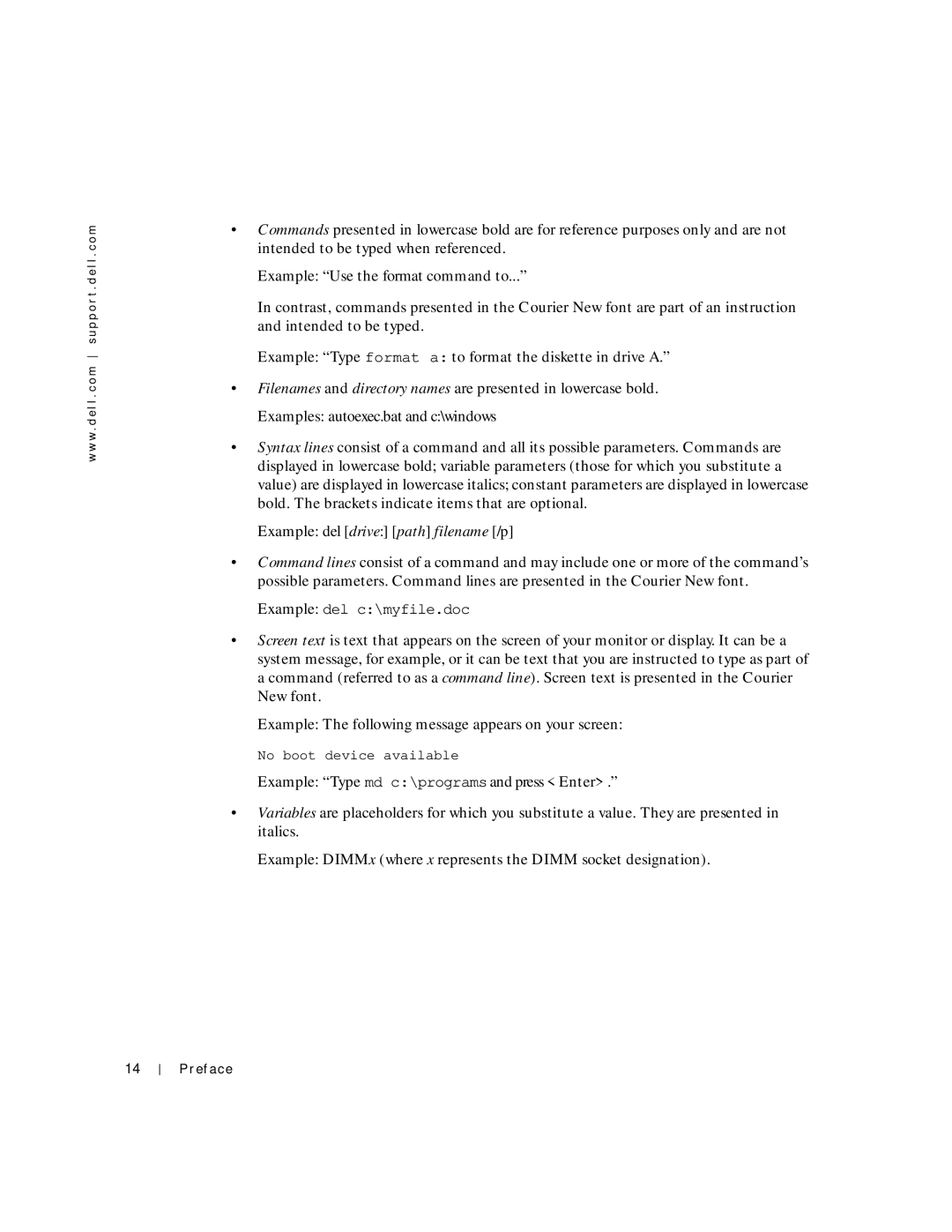w w w . d e l l . c o m s u p p o r t . d e l l . c o m
•Commands presented in lowercase bold are for reference purposes only and are not intended to be typed when referenced.
Example: “Use the format command to...”
In contrast, commands presented in the Courier New font are part of an instruction and intended to be typed.
Example: “Type format a: to format the diskette in drive A.”
•Filenames and directory names are presented in lowercase bold. Examples: autoexec.bat and c:\windows
•Syntax lines consist of a command and all its possible parameters. Commands are displayed in lowercase bold; variable parameters (those for which you substitute a value) are displayed in lowercase italics; constant parameters are displayed in lowercase bold. The brackets indicate items that are optional.
Example: del [drive:] [path] filename [/p]
•Command lines consist of a command and may include one or more of the command’s possible parameters. Command lines are presented in the Courier New font.
Example: del c:\myfile.doc
•Screen text is text that appears on the screen of your monitor or display. It can be a system message, for example, or it can be text that you are instructed to type as part of a command (referred to as a command line). Screen text is presented in the Courier New font.
Example: The following message appears on your screen:
No boot device available
Example: “Type md c:\programs and press <Enter>.”
•Variables are placeholders for which you substitute a value. They are presented in italics.
Example: DIMMx (where x represents the DIMM socket designation).
14
Preface
